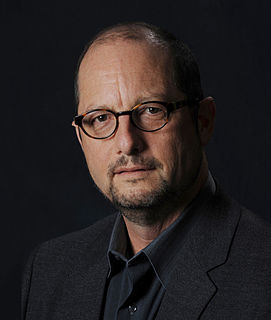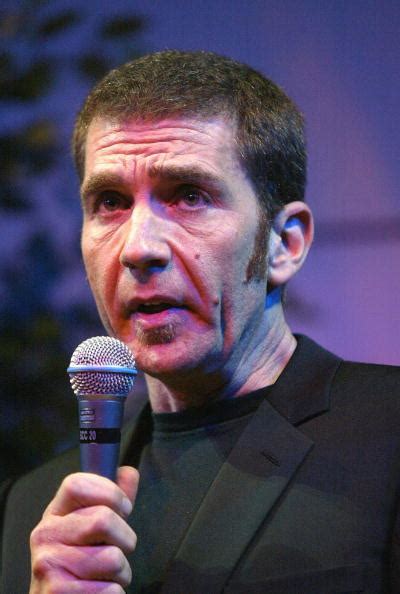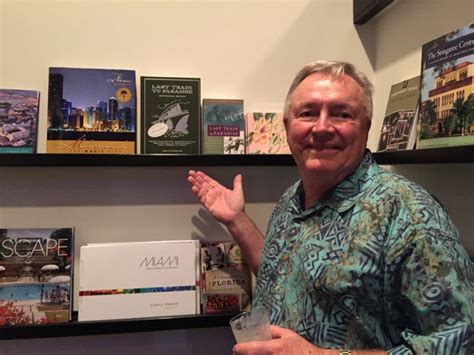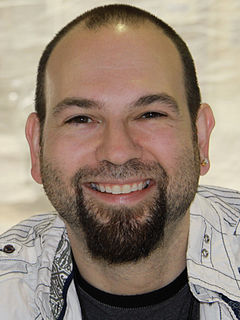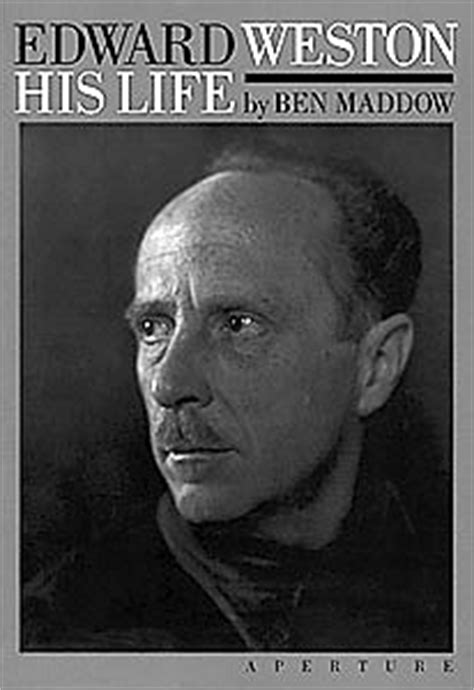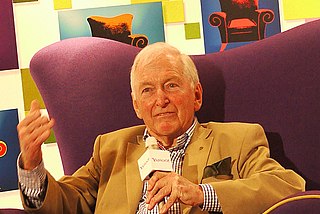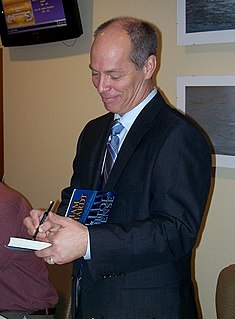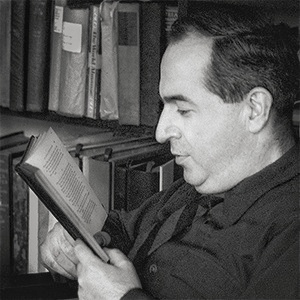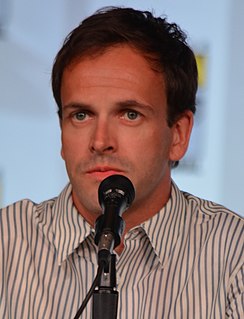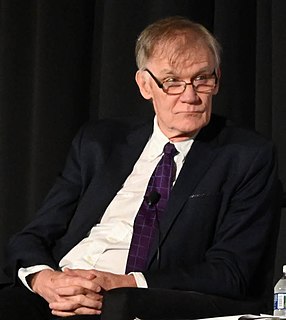Top 1200 Detail Quotes & Sayings - Page 19
Explore popular Detail quotes.
Last updated on April 22, 2025.
The story of my life has been of public interest, which is why I've been so passionate about having a private identity. When I step into a character, people have to be able to suspend their disbelief; they have to be able to divorce me from Hermiona. And not having everyone know every single intimate detail of my entire life is part of me trying to protect my ability to do my job well.
The greatest act of love was to make a tape for someone. It was the only way we could share music and it was also a way of advertising yourself. Selection, order, the lettering you used for the track list, how much technical detail you went into, whether or not you added artwork or offered only artwork and no track list at all, these choices were as codified as a Victorian bouquet.
The elements of a good story are most definitely details, little bitty details. That does it, especially when you're describing, when you're setting the scene and everything. It's like you're painting a picture, so details are very important. Also, the music gotta be right. The music can really set the tone for the story and let you know what the story is gonna be about, but definitely, it's the vibe in the place where you at and the detail.
For the third generation Unreal Engine, we are building two versions of every model in our game. We are building a source model with several million polygons, between 2 and 6 million polygons. We use that model for all the lighting detail on the mesh. Then we go to the in-game version, which is usually about 10,000 polygons.
"Well, we were always going to fail that one," said Ron gloomily as they ascended the marble staircase. He had just made Harry feel rather better by telling him how he told the examiner in detail about the ugly man with a wart on his nose in the crystal ball, only to look up and realize he had been describing the examiner's reflection.
Here is an old Oriental proverb: *A journey of a thousand miles begins with one step.* It is difficult to anticipate just how a situation will develop in every detail until you take a step forward and try out your present equipment. Then, if weaknesses appear, you will have clues as to how to strengthen your resources. No scheme or plan is perfect. Perfection is a process, not an end.
In terms of the historical record, I should also point out that there is no account in any ancient source whatsoever about King Herod slaughtering children in or around Bethlehem, or anyplace else. No other author, biblical or otherwise, mentions this event. Is it, like John's account of Jesus' death, a detail made up by Matthew in order to make some kind of theological point?
The religious school she went to, growing up, Ms. Wright said how all the girls had to wear a scarf tied to cover their ears at all times. Based on the biblical idea that the Virgin Mary became pregnant when the Holy Spirit whispered in her ear. The idea that ears were vaginas. That, hearing just one wrong idea, you lost your innocence. One detail too many and you’d be ruined. Overdosed on information.
you must be careful never to allow doubt to paralyze you. always take the decisions you need to take, even if you're not sure you're doing the right thing. You'll never go wrong if, when you make a decision, you keep in mind an old German proverb: 'The devil is in the detail.' Remember that proverb and you'll always be able to turn a wrong decision into a right one.
The Adderall Diaries is phenomenal. With jittery finesse and a reformed tweaker's eye for detail, Stephen Elliott captures the terrifying, hilarious, heart-strangling reality of a life whose scorched-earth physical and psycho-emotional dimensions no one could have invented - they absolutely had to be lived. By all rights, the author should either be dead or chewing his fingers in a bus station. Instead, he may well have written the memoir of an entire generation.
I think when you've been in a band for a really long time, sometimes you don't appreciate what's good about yourself. It's easy to play something and get too focused on some small detail. It's helpful to have somebody around who can say, "No, that was good." Just so you don't get too lost or forget what you do. You need somebody you really trust who has great taste.
In God’s great plan, every detail is important, even yours, even my humble little witness, even the hidden witness of those who live their faith with simplicity in everyday family relationships, work relationships, friendships. There are the saints of every day, the “hidden” saints, a sort of “middle class of holiness” to which we can all belong.
Exegetical commentaries on the books of the Bible come in all shapes and sizes. Harold Hoehner's new volume on Ephesians has both a distinctive shape and a monumental size. Its value lies in its attention to detail and its full discussion of all relevant and disputed points. The volume will be an invaluable resource for scholars and students. Not all Hoehner's conclusions will command consent, but he has produced a stout and readable volume that all will turn to for guidance and help.
Maybe it's because we as writers are alone so often, are so attuned to listening to the run of our own thoughts, that we find it more natural to write down the thoughts rather than the deeds of our characters. But speaking as a teacher who has spent some twenty years slogging through manuscripts where thoughts and exposition pile up as thick as the aftermath of a California mudslide, I can attest to the power of the evocative detail, gesture, or figment of speech.
When you're writing TV or movies your vernacular is time, it's all based on rhythms, a character takes a beat or two characters have a moment, like everything is about time. And when you're writing a comic, everything is about space. It's how many panels to put on a page, when should you do a full page splash, what is the detail that you see in any particular image.
Jazz spent a chunk of the day fantasizing about ways to kill his grandmother, plotting them and planning them in the most excruciating, gruesome detail his imagination would allow. It turned out his imagination allowed quite a bit. He spent the rest of the day convincing himself--over and over--not to do it.
In every man there is a hidden child which is called the urge to create and he prefers as play things and serious things not the miniature ships, recreated in the minutest detail, but the walnutshell with a bird feather as mast and sail and a pebble as the captain. He also wants to be able to participate and to co-create in art, rather than being simply an admiring viewer. For this "child in man" is the immortal creator within him.
There are only four types of officer. First, there are the lazy, stupid ones. Leave them alone, they do no harm…Second, there are the hard- working, intelligent ones. They make excellent staff officers, ensuring that every detail is properly considered. Third, there are the hard- working, stupid ones. These people are a menace and must be fired at once. They create irrelevant work for everybody. Finally, there are the intelligent, lazy ones. They are suited for the highest office.
In early 1999, I was watching TV, when I came across a story on Afghanistan. It was a story about the Taliban and the restrictions they were imposing on the Afghan people, most notably women. At some point in the story, there was a casual reference to them having banned the game of kite fighting. This detail struck a personal chord with me, as I had grown up in Kabul flying kite with my friends.
Put in hours and hours of planning, figure everything down to the last detail, then what? Burglar alarms start going off all overthe place for no sensible reason. A gun fires of its own accord and a man is shot. And a broken-down old house no good for anything but chasing kids has to trip over us. Blind accidents. What can you do against blind accidents?
If you don't know where you are going, then how will you get there? VISUALISE! Make pictures in your mind. See the desination. Imagine your arrival. Dream in perfect detail. See yourself the way you want to be when you arrive. See yourself arriving. Make yourself a road map and study it every day until you know the way and the destination by heart.
Few literary depictions of the 1906 San Francisco earthquake match the intensity and visceral power of those in Flacco's gripping first novel. The author's screenwriting talent shines in this story of the earth's destructive power and humanity's moral depravity. The emerging maniacal personality, revealed in increasingly gruesome and venomous detail, rivals the Ripper.Dickens meets Hannibal Lecter. Brace yourself.
It is a popular error that bureaucracy is less flexible than private enterprise. It may be so in detail, but when large scale adaptations have to be made, central control is far more flexible. It may take two months to get an answer to a letter from a government department, but it takes twenty years for an industry under private enterprise to readjust itself to a fall in demand.
A mediocre man copying nature will never produce a work of art, because he really looks without seeing, and though he may have noted each detail minutely, the result will be flat and without character... the artist on the contrary, sees; that is to say, his eye, grafted on his heart, reads deeply into the bosom of nature.
Without memories to cloud it, the mind perceives with absolute clarity. Each observation stands out in stark relief. In the beginning, when there's not yet a smudge, the slate still blank, there is only the present moment: each vital detail, shocked color, the fall of light. Like film stills. The mind relentlessly open to the world, deeply impressed, even hurt by it: not yet gauzed by memory.
What is needed, however, isn't just that people working together be nice to each other. It is discipline. Discipline is hard--harder than trustworthiness and skill and perhaps even than selflessness. We are by nature flawed and inconstant creatures. We can't even keep from snacking between meals. We are not built for discipline. We are built for novelty and excitement, not for careful attention to detail. Discipline is something we have to work at.
The moth settled onto the curtain and sat still. It was an astonishing creature, with black and white wings patterned in geometric shapes, scarlet underwings, and a fat white body with black spots running down it like a snowman's coal buttons. No human eye had looked at this moth before; no one would see its friends. So much detail goes unnoticed in the world.
I was interested first of all in trying to capture this myth that was always changing and to create some sort of a master story, some version of the myth that resonated with me, since I could have taken more or less any detail that I wanted or the opposite and try to put that down on the page in a way that I could express from that outset for myself and for our readers what it was that was so magical about [Buckminster] Fuller's way of putting together the world.
Is there in painting an effect which arises from the being together of repose and energy in the artist's mind? - can both repose and energy be seen in a painting's line and color, plane and volume, surface and depth, detail and composition? - and is the true effect of a good painting on the spectator one that makes at once for repose and energy, calmness and intensity, serenity and stir?
There are ancient and modern poems which breathe, in their entirety and in every detail, the divine breath of irony. In such poemsthere lives a real transcendental buffoonery. Their interior is permeated by the mood which surveys everything and rises infinitely above everything limited, even above the poet's own art, virtue, and genius; and their exterior form by the histrionic style of an ordinary good Italian buffo.
When I'm editing my work, I'm looking for everything to fit, to feel seamless, for every detail or line of dialogue or scene to feel necessary and organic. I approach the writing of others in much the same way while always working to preserve the writer's voice. To allow myself to be vulnerable on the page, I tell myself no one is going to read my work. There's no way I could put myself out there otherwise.
If a man, before he passed from one stage to another, could know his future life in full detail, he would have nothing to live for. It is the same with the life of humanity. If it had a programme of the life which awaited it before entering a new stage, it would be the surest sign that it was not living, nor advancing, but simply rotating in the same place.
All these people that you meet or I meet, there's not a prayer in hell that they're ever going to run for office or major office because if they're that smart, they're also smart enough to know they don't want to take everything that they've built up and have it torn apart by a sensationalized media that's so hungry for any kind of salacious detail that they'll make that the emphasis of the person's life. And then all of sudden, 50, 60 years of hard work and accomplishment go out the window.
Cut like crazy. Less is more. I've often read manuscripts - including my own - where I've got to the beginning of, say, chapter two and have thought: “This is where the novel should actually start.” A huge amount of information about character and backstory can be conveyed through small detail. The emotional attachment you feel to a scene or a chapter will fade as you move on to other stories. Be business-like about it.
Where there is life, there is hope. Where there are hopes, there are dreams. Where there are vivid dreams repeated, they become goals. Goals become the action plans and game plans that winners dwell on in intricate detail, knowing that achievement is almost automatic when the goal becomes an inner commitment. The response to the challenges of life - purpose - is the healing balm that enables each of us to face up to adversity and strife.
Eric Schlosser's book on the economy and strategies of the fast-food business should be read by anyone who likes to take their children to fast-food restaurants. I shall certainly never do that again. He employs a long, cold burn, a quiet and impassioned accumulation of detail, with calm, wit and clarity. (...) Fast Food Nation is witness to the rigour and seriousness of the best American journalism, readable, reliable and extremely carefully done.
I have studied the enemy all my life. I have read the memoirs of his generals and his leaders. I have even read his philosophers and listened to his music. I have studied in detail the account of every damned one of his battles. I know exactly how he will react under any given set of circumstances. And he hasn't the slightest idea of what I'm going to do. So when the time comes, I'm going to whip the hell out of him.
For me, there are two different things that make Sherlock Sherlock. One is, you know, within the books: obviously he's a genius with an attention to detail, his ravenous hunger for all aspects of knowledge that might feed into his work. But the major thing that makes him Sherlock is his relationship with Watson - their friendship. For me, that, I guess, is the biggest side, the more interesting side than the genius.
Many Syrians understand that the only way to protect your country is to live with each other with integration, not only in coexistence, which is actually more precise to call cohabitation, when people interact and integrate with each other on daily basis in every detail. So, I think in this regard I am more assured that Syria will be more unified. So, the only problem now that we face is not the partition, but terrorism.
I think the novel is essentially a comic form (tragedy is for the theatre), not meaning by that full of jokes, but that it is about the absurd detail of human life, the way in which one cannot fully understand what is happening. Life is muddle and jumble and ends inconclusively, and when this is presented with great comic art the sorrows of human life can be truthfully conveyed; one is moved by the spectacle, and feels that something truthful has been told in a magic way.
Actually, screenplays were much more detailed than what I did in the book In the book I had to invent a style for communicating what the sensation of looking at a film would be, whereas the screenplays I wrote in Paris were actual blueprints for how to do the film, with every gesture, every little movement noted in exhaustive detail.
The devil's in the details. The way I view my job is to bring the reader into a world they otherwise could not enter and let them see it through the character's eyes. And you can only do that with detail. The details make the characters distinct from one another. If you can give them those little grace notes, those little touches, that's what makes the reader relate.
There is a comfort with design that may be a detail, rather than a building; comfort with form that is time-released and never finished. How do you represent an instruction set that will play out in time? There may be slightly different kinds of documents for representing those forms, and different skills for advocating change outside of our fee-for-service habits.
When I started out in business, I spent a great deal of time researching every detail that might be pertinent to the deal I was interested in making. I still do the same today. People often comment on how quickly I operate, but the reason I can move quickly is that I've done the background work first, which no one usually sees. I prepare myself thoroughly, and then when it is time to move ahead, I am ready to sprint.
Fiction writers, at least in their braver moments, do desire the truth: to know it, speak it, serve it. But they go about it in a peculiar and devious way, which consists in inventing persons, places, and events which never did and never will exist or occur, and telling about these fictions in detail and at length and with a great deal of emotion, and then when they are done writing down this pack of lies, they say, There! That's the truth!
The deadly weapon against totalitarian society is openness - doing everything very openly on the Internet, letting people know every detail, any little development. Once it is out there, everybody can make their own judgement. [Therefore] holding a trial outside the court. I think that is fairness, that is justice, that is a civil society. Otherwise call it an evil society because everything is hidden.
Socrates claimed famously that one never loses by doing the right thing. Stephen Post and his contributors claim, a little less boldly, that at least the generous will, probably, stay healthy—and, improving on Socrates, they support this claim with careful empirical science, impressive for its comprehensive detail. Here ethics and religion join science and enjoin us to be more caring and healthy. A seminal work, with an urgent message.
I start with no preconceived idea - discovery excites me to focus - then rediscovery through the lens - final form of presentation seen on ground glass, the finished print previsioned completely in every detail of texture, movement, proportion, before exposure - the shutter's release automatically and finally fixes my conception, allowing no after manipulation - the ultimate end, the print, is but a duplication of all that I saw and felt through my camera.
The field is a halfway house, halfway between the detail of those intimately known places and the ignorance of a landscape view ... The essence of a field is that the cultural accommodates the natural there. The human being makes room for and makes use of those organisms that are not him. In that way the field is a poem to symbiosis, and a human contract with the natural.
I think things are imploding on the Democrats, and I actually think this is one of the reasons why the media is so desperate, because despite all the minutia and detail here, in the real world, the things the Democrat Party believes in are failing all over the world, not just here in the United States. The Obama administration was an economic disaster, was an economic failure. Liberalism, socialism around the world is imploding.
The incomparable James Walvin has done it again: he has crafted a beautifully written and deeply informed single volume history of the Atlantic slave trade and its consequences on three continents. This book is full of fresh ideas and astounding detail; it is at once great storytelling, punctuated with real people and voices, and an unblinking analysis of numerous great questions and paradoxes about the power of slavery in creating the Atlantic world over four centuries.
Peter Fleming was a famous English traveler, explorer and adventurer, whose non-fiction books were hugely successful. My father owned signed copies of all of them - he and Peter Fleming had become acquainted over some detail of set design at the Korda film studio in Shepperton - and I had read each of them with breathless adolescent excitement.
Photography has an amazing ability to capture the fine detail of surface textures. But far too often these intricate patterns are loved by the photographer for their own sake. The richness of texture fascinates the eye and the photographer falls easy prey to such quickly-caught complexities. The designs mean nothing in themselves and are merely pictorially attractive abstractions. A central problem in contemporary photography is to bring about a wider significance in purely textural imagery.
It is most gratifying," it said, "that your enthusiasm for our planet continues unabated, and so we would like to assure you that the guided missiles currently converging with your ship are part of a special service we extend to all of our most enthusiastic clients, and the fully armed nuclear warheads are of course merely a courtesy detail. We look forward to your custom in future lives ... thank you.
The book is about zombies, in that it is the over-arching theme, but what's going on is the story of these people and how these survivors deal. I think that's so much more of an interesting story, and that's what really gets and hooks these readers into the book and the show. It's a mix of fans of drama, fans of AMC, fans of horror and fans of Frank [Darabont]. It's a lot of people just coming together and realizing a genre doesn't have to be fixed in one specific detail.







